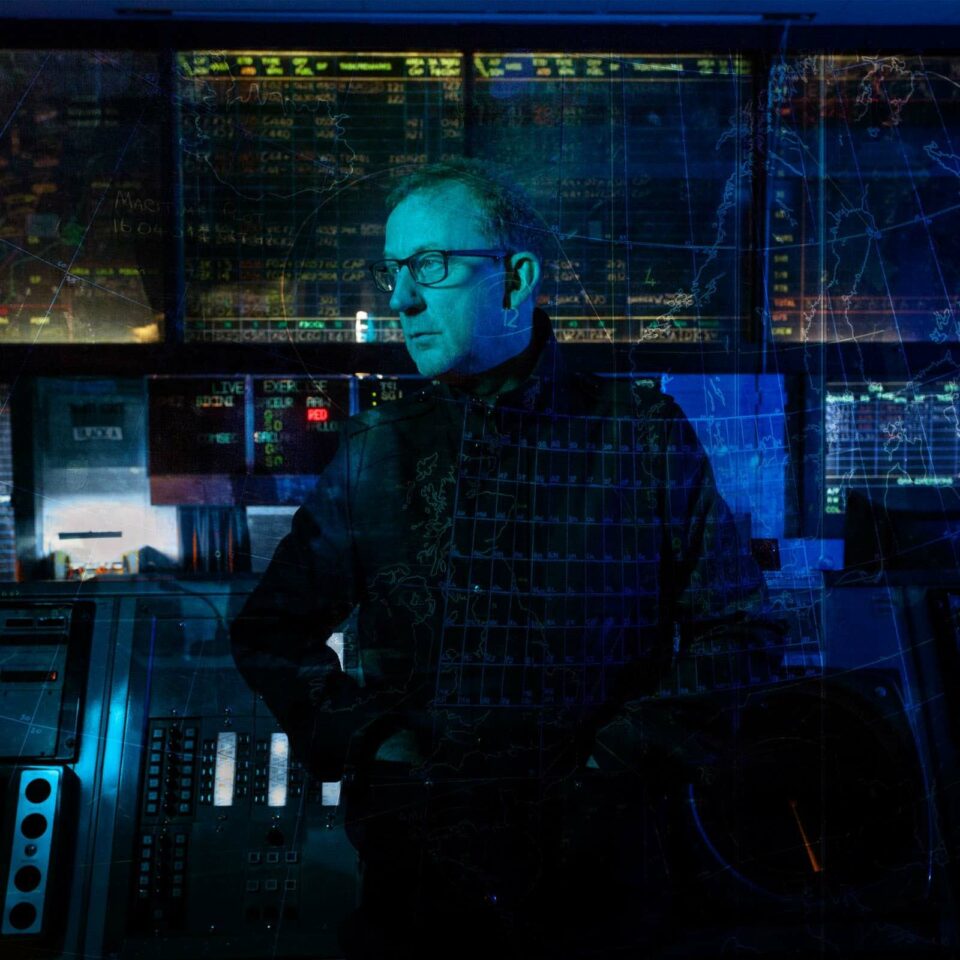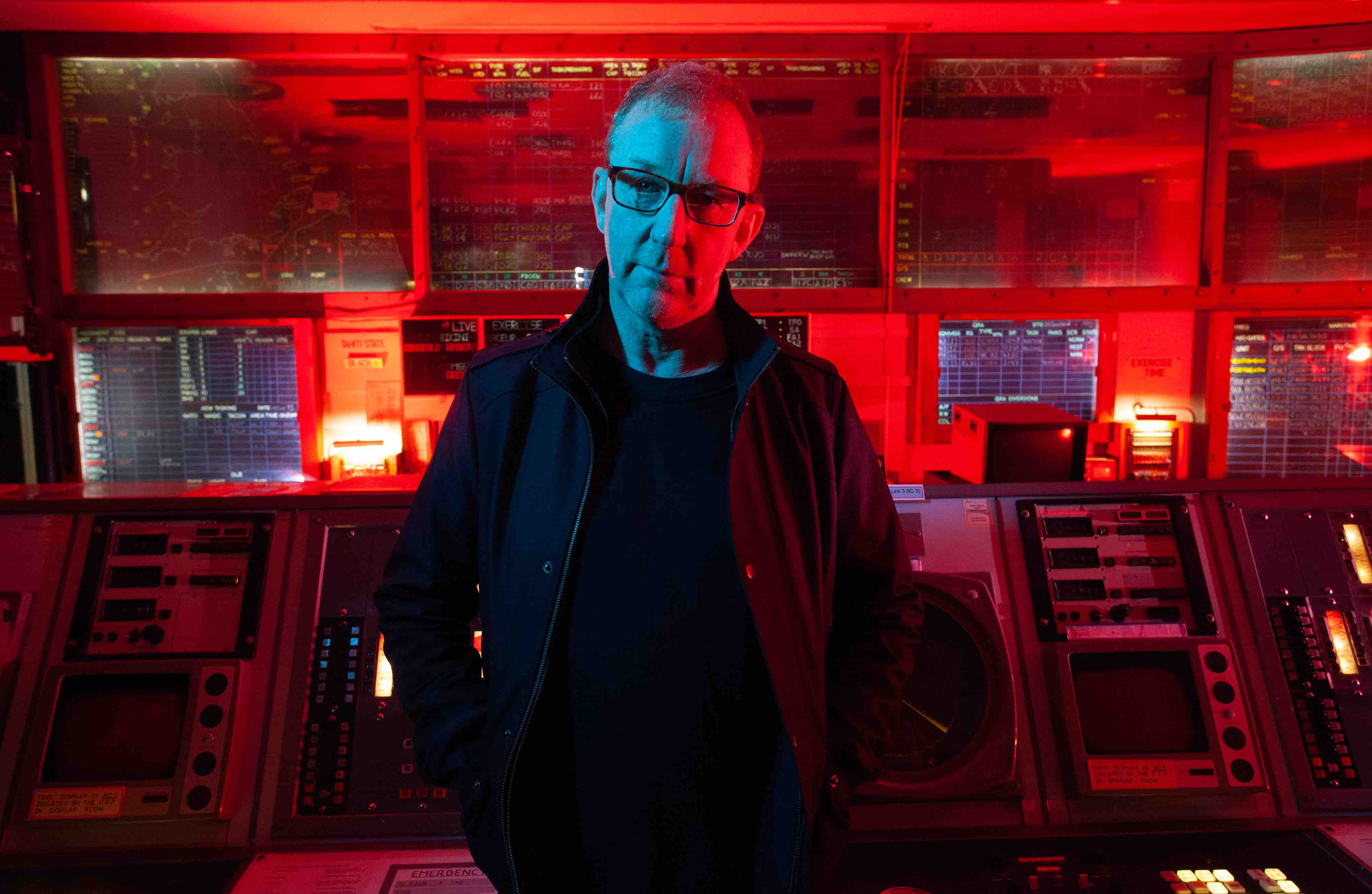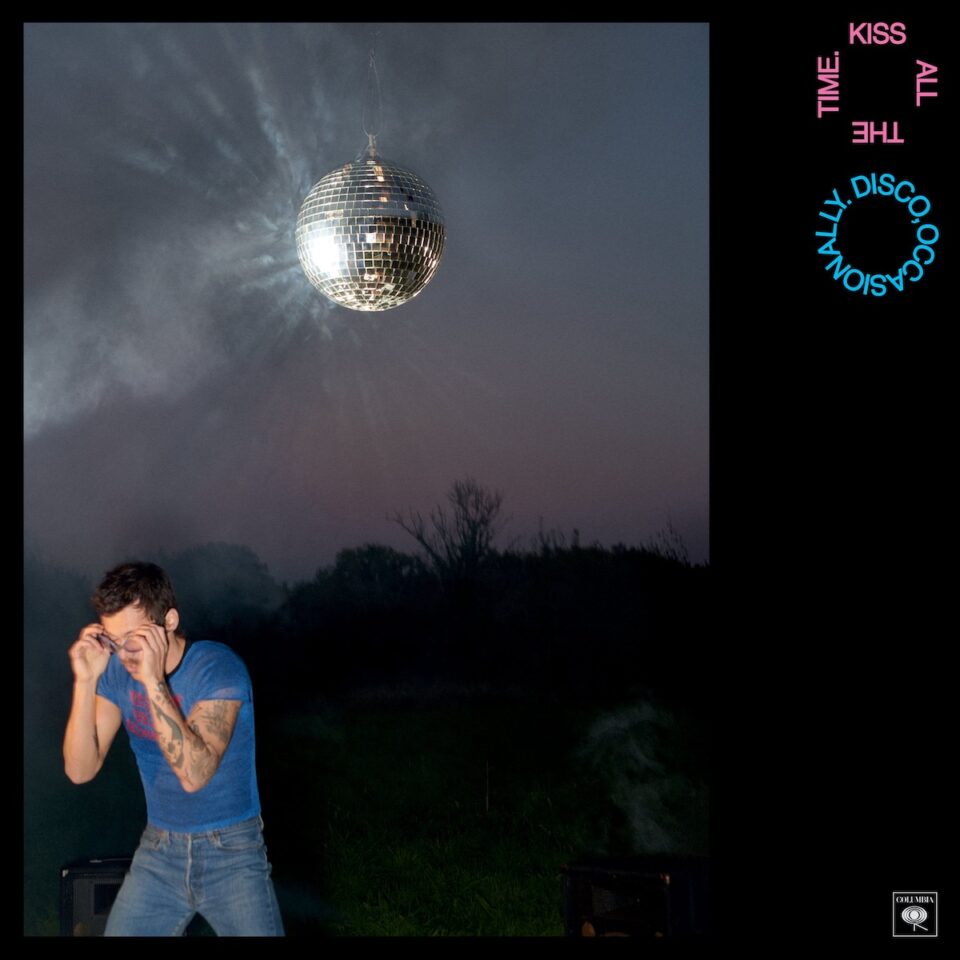Around three decades ago, Dave Rowntree was primarily known as the core percussionist for Blur. Since his time with one of the UK’s most popular bands—which never seems to fully end, as they now have a small reunion tour on the horizon—he’s been a lawyer, an animator, a pilot, a county councillor for the Labour Party, a successful composer for film and TV (including credits on Netflix’s The One series). And now he’s released his first solo album, Radio Songs.
The 10-track LP is meant to feel like flipping through the radio dial (a habitual hobby Rowntree remembers fondly from his childhood, and while touring with Blur) held together by static and a more electronic vibe than his time with the Britpop kings permitted. Occasionally Radio Song feels like LCD Soundsystem or even Massive Attack, lyrically touching on the social disharmony of the world and Rowntree’s perception of life in England. “I wanted it to be unexpected, which is kind of the paradoxical thing to do, isn’t it,” he says from his countryside home. “People probably expected a more drum-based rock album from me, but that didn’t interest me. I wanted it to be more cinematic.”
With Radio Songs out now, we spoke with Rowntree about the importance of radio in his life, societal dread, and finding confidence outside of Blur.
What made you decide to make a solo album?
It came about because of my film music career that I’ve been quite successful at doing. That gave me a lot of confidence, actually, in the music I write. One thing about being in Blur—which is really Damon [Albarn]’s band—is that it can kind of ebb away at your confidence. Having somebody else to do the songwriting and being the front person, you just kind of resign yourself to your role. So I had some cool songs I’d been writing over the years and thought of reserving more time for writing more and finding some cool people to work with and get it going. But then I got busier with the film music, and honestly if it hadn’t been for COVID, this album probably would have never been finished. It gave me the space to do it.
“People probably expected a more drum-based rock album from me, but that didn’t interest me. I wanted it to be more cinematic.”
This is the first time you’re not only the songwriter, but the singer as well. You’ve sung backup a bit in Blur, but did you have to find confidence in your voice?
I mean, I wrote an album about me. I wrote quite an honest album about my life. And that was the thing that took more confidence. For the singing, some people told me they didn’t think I could do it. So I’m blood-minded enough to take that as a challenge. But deep down, I knew I could do it. I was nervous about my voice holding up for a whole show, so I took some singing lessons to build that strength and stamina.
And you’ve performed some of the songs live already?
Yeah. Three small shows to just kind of dip my toe in the water, really, to see how it was going to work.

The album really does feel like you’re tuning in to different radio stations, especially with the static between some of the songs. Has radio followed you your entire life?
That was the idea—that you’re listening to the radio and spinning the dial and stations kind of pop out when you tune them. But yes, radio was a massive bit of my life growing up. My father was a radio technician who used to teach pilots how their radios worked. He taught me about radio, and we used to build radios together. Radio was my political awakening—listening to news broadcasts in English or from foreign stations and noticing that there are potentially more interpretations of world events. It’s interesting for a child. Just imagine what you hear on TV news in your country. You assume it’s the truth, but when you learn several truths from around the world, which one is the actual truth?
“Radio was my political awakening—listening to news broadcasts in English or from foreign stations and noticing that there are potentially more interpretations of world events.”
And I’m sure when you traveled you listened to radio in different countries?
Yes, absolutely. The difference between American radio and English radio could not be more pronounced. And the odd thing was when I was in Hong Kong on the last tour with Blur, I was listening to Chinese radio in my hotel room and it was as different again. It was even more energetic, but because there’s the language barrier as well, it was very hard to tell which bits were adverts and which bits were the music. That was kind of the inspiration for that song “HK” on the album. It started off like recording a Chinese radio station and manipulating it.
I found the album very melodic, but picked up on this huge sense of societal dread in the lyrics, especially on “Devil’s Island” or “Downtown.”
That’s fair to say. Around the time I was writing a lot of these tracks, it just seemed to me that Britain was heading into a very dark place. It was after Brexit, and the far right was on the rise, and populism had become the mainstream political point of view. The press was very reluctant to criticize the government. The government, to some extent, has shackled the press, especially in the BBC. The government is in charge of funding the BBC, and yet the BBC is the voice of the nation. So it’s an unhealthy situation. They’ve got a right-wing populist as head of the BBC, who’s criticizing journalists for asking awkward questions of the government.
You also grew up in 1970s England, so did you see any similarities?
Yes, exactly. How crazy is it that we’ve ended up here again? England was a tinpot dictatorship in the 1970s, run by idiots who crashed the economy. The Nazi party, the National Front, was on the rise, marching through city centers. And so I’d seen all that before. And that was happening again. I was very, very concerned about where all this was going. And I think we’ve seen where it’s all gone—I was right to be concerned.
You were also involved with the government as a councilor for the Labour Party.
It was the district sort of state level. I’ve been involved with the Labour Party since I was young, but being a councilor was a much broader view. I was responsible for some big issues in the country. We ran the fire service and children’s services, adult social care…all of these things are massive political hot potatoes. We were also the opposition, which was interesting. Politics has always been part of the fabric of who I am, really, so it was good to have that personal involvement. I also became a lawyer for a time for the same reason.
“As the band got bigger, it got harder to get that sense of being personally helpful in other people’s lives. Playing in front of 100,000 people, you can’t even see the front row.”
So when Blur went on hiatus it gave you a chance to really pursue other things you found important.
I wanted to get involved locally, sometimes one-on-one, to see what I could do to help another person. As the band got bigger, it got harder and harder to get that sense of being personally helpful in other people’s lives. You get that, as a small band, when you see the audience in front of you, and you can see that your music is making their evening a good one. Playing in front of 100,000 people, you can’t even see the front row. That alone gets quite abstract, depending on how you measure it.
Is this reunion with Blur a one-off thing, or do you think there might be a new album to follow up The Magic Whip?
There’ll definitely be some recording, but what form it will take? Who knows. It’s very rare that we go out on tour and don’t do any new material. I think that’s quite a difficult thing to do, especially for a band like us that likes to look forward. FL







